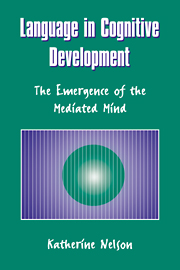9 - The Emergence of the Temporal Mind
Published online by Cambridge University Press: 05 June 2012
Summary
“What then is time? If no one asks me, I know; if I wish to explain it to him who asks me, I do not know.”
Augustine, ConfessionsTime provides a good case study for the thesis of this book precisely because a sense of time is universal and to some extent present at least from birth, but the biological given is overlaid by the social, cultural, and linguistic systems through which time is measured and ordered, as well as by the theoretical systems by which scientists and philosophers conceptualize it. Time is also organized according to domain-specific principles; it is neither narrative nor taxonomic, yet its organization varies culturally and linguistically. Therefore, it is not a heritable, encapsulated module. Development of time knowledge requires a different explanation.
Time is central to developmental processes and is a basic dimension of action, activity, and event structure. Coordinating the experiential dimension of time with its cultural and social conception presents a significant problem for the child. Yet in the past, developmental psychologists have viewed concepts of time primarily as a logical system of mathematical relations. In contrast, social and cognitive psychologists, linguists, and philosophers have recognized many more of the facets of time that are waiting to challenge a child coming to understand the workings of the social, cultural, and physical world.
The cultural definition of time in Western societies in many ways departs from its biological sense as well as its basis in natural cycles, to provide an essentially arbitrary system of time measurement ranging from picoseconds to epochs of millenia.
- Type
- Chapter
- Information
- Language in Cognitive DevelopmentThe Emergence of the Mediated Mind, pp. 259 - 291Publisher: Cambridge University PressPrint publication year: 1996
- 4
- Cited by



